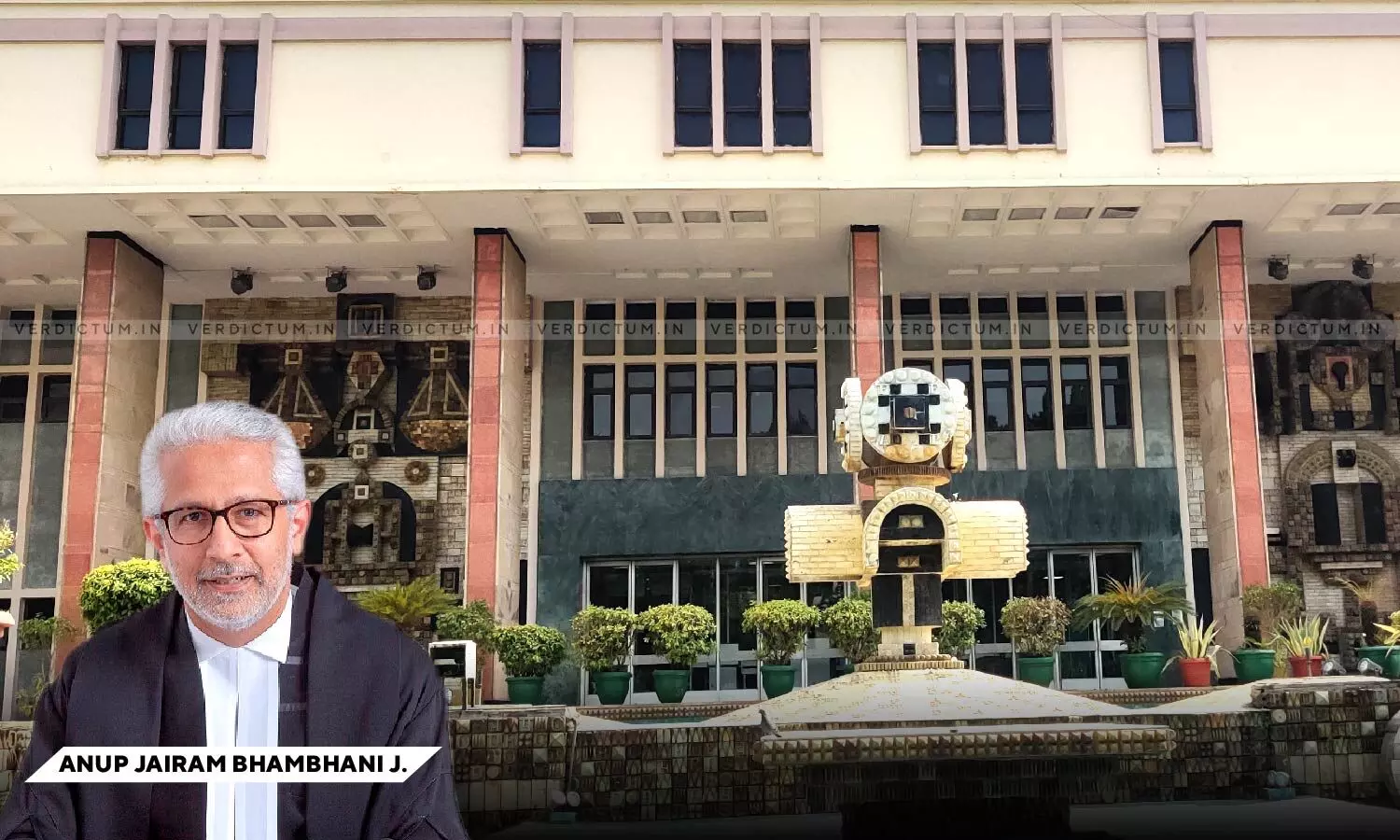
Anticipatory Bail Is Maintainable In PMLA Cases Even If Individual Is Not Named As Accused In Enforcement Case Information Report Or Complaint: Delhi HC
 |
|The Delhi High Court has held that an application for anticipatory bail under Section 438 of the Code of Criminal Procedure (CrPC) is maintainable even when the petitioner is not specifically named as an accused in the Enforcement Case Information Report (ECIR) or the prosecution complaint.
A Single Judge Bench of Justice Anup Jairam Bhambhani observed that “Once this court has held that an application seeking anticipatory bail is maintainable notwithstanding that the petitioner is not named as an accused in the ECIR or in the prosecution complaint, this court cannot delve into whether the concerned court before whom the application under section 438 Cr.P.C. is filed would, or would not, grant relief to the petitioner. Consequently, in view of the settled legal position, as reiterated by the Supreme Court in Neeharika Infrastructure Pvt. Ltd. vs. State of Maharashtra and Ors., the question of granting any interim relief as prayed for by the petitioner does not arise”.
The Bench further re-iterated that “the power of arrest under section 19 of the PMLA is not untrammeled. The authorities do not have the power to arrest on their whims and fancies. There is a three-fold requirement that must be complied-with before arresting a person: Firstly, the Director must entertain a reasonable belief that the person arrested is guilty of an offence under the PMLA, and not under any other enactment; Secondly, the reasons for such belief must be recorded in writing; and Thirdly, such belief must be based on material that is in the Director’s possession”.
Senior Advocate Mohit Mathur appeared for the Petitioner, whereas Advocate Anupam S. Sharma appeared for the Respondent.
As per the brief facts, the petitioner had sought a direction to quash the ECIR registered by the Directorate of Enforcement (ED). The accompanying application requested a stay on all proceedings arising from the ECIR, which was being investigated by the ED. Additionally, the petitioner sought a directive to the ED not to take coercive actions that would curtail the petitioner's personal liberty. The immediate reason for the petitioner's approach to the court was a summons dated 18.08.2023 issued by the Assistant Director of the Directorate of Enforcement, Chandigarh, under Section 50(2) and (3) of the Prevention of Money Laundering Act, 2002 (PMLA). The ED had registered the ECIR based on an FIR filed by the Central Bureau of Investigation (CBI). The FIR alleged offenses, including criminal conspiracy, cheating, forgery of valuable security, forgery for the purposes of cheating, using forged documents as genuine, and criminal misconduct. These offenses were said to have been committed from 2012 onwards in connection with the operations of M/s. Educomp Solutions Ltd (ESL).
After considering the submission, the Bench observed that Section 438 of the CrPC does not necessitate a formal accusation, since the use of the word 'may' before the phrases 'be arrested' and 'on accusation' implies that both arrest and accusation are anticipatory.
This means, firstly, that an application under Section 438 can only be submitted by a person who has not yet been arrested. Secondly, an application under Section 438 can be filed regardless of the presence of a formal accusation, such as an FIR. This holds true even in cases under the PMLA, where the existence of a prosecution complaint is not a determining factor, added the Bench.
The Bench further noted that while a person can seek protection under Article 20(3) of the Constitution of India only ex-post, meaning after being formally accused, a person can seek relief under Section 438 of the CrPC ex-ante, which is before both arrest and accusation.
The Bench highlighted that interpreting Section 438 differently in the context of the PMLA would contradict the Constitution Bench decision of the Supreme Court in Gurbaksh Singh Sibbia vs. State of Punjab [(1980) 2 SCC 565], which explicitly state that the filing of an FIR, representing a formal accusation, is not a condition precedent for filing an application under Section 438 of the CrPC.
At the same time, the Bench clarified that the present decision should not be misconstrued as a bar on the High Court's authority under Article 226 of the Constitution to entertain a petition from an individual who is not explicitly named as an accused in a scheduled offence or a prosecution complaint arising from an ECIR.
Such a restriction would run counter to established legal principles, as affirmed by the Supreme Court in the case of L. Chandra Kumar vs. Union of India [(1997) 3 SCC 261], added the Bench.
Accordingly, the High Court dismissed the petition.
Cause Title: Ashish Mittal v. Directorate of Enforcement and Anr. [Neutral Citation: 2023: DHC: 7656]
Click here to read/ download the Judgment